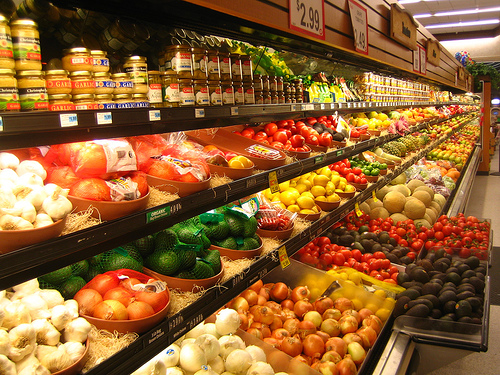I’m still waiting for some brave food producer to start marketing food safety at retail because I don’t care if lettuce and spinach are local, natural, sustainable, and was produced without harming any animals: I do care if it has E. coli and I want to know what a brand is doing about it. At the grocery store. Where I decide what brand to buy.
A group of Mexican produce producers is, according to The Packer, planning to invest in the issue with the Eleven Rivers Growers food safety and quality assurance label.
And while starting with the supply chain, the group wants the labels at retail by 2013.
“We believe that we will have 22 or 23 producers (under the label),” said Fernando Mariscal, cooperative representative. “Most important, we are expecting to have production around 40  million 25-pound boxes for this winter season.
million 25-pound boxes for this winter season.
"We’ll start the process with weekly inspections that are not going to be announced,” Mariscal said.
The unannounced part is good, but Eleven Rivers is going to rely on third-party auditors like Primus Labs or Scientific Certification Systems, or anyone who can meet the standards, which could be bad. Better to have some in-house expertise to make use of the audits are really create a strong food safety culture, one strong enough and backed up with date to support safety claims at retail.
Grower-shippers pay about five cents a box for the labels. Those who pass the inspections will add Eleven Rivers Growers to their existing labels. Any who fail lose the label until the causes are addressed.
For now, the label will only go as far as the pallet level — basically, a 4-inch tape around pallets.
“It’s our aim to reach the supply chain this year,” Mariscal said.
“Next year we hope to reach the final consumer, label each box and be present at the supermarkets.”
Because of that limit, the cooperative will push to keep pallet quantities together.
“We’re trying to show that pallet has been carefully monitored from crop to distribution, that it’s been well-handled all the way. Because some of the shipments will go to other suppliers, like terminal markets or brokers, we have to be sure it remains within its quality conditions.”
Commodities include a mix of tomatoes, bell peppers, chilies, cucumbers, eggplant, green beans and squash. Plans call for adding more crops over time.
Among the participating members in the nonprofit cooperative are Del Campo y Asociados; Tricar Sales; Triple H; Grupo GR; De La Costa; CAADES Sinaloa; Agroindustrias Tombell; Agricola de Gala; Agricola EPSA; and Agroexportadora del Noreste.
